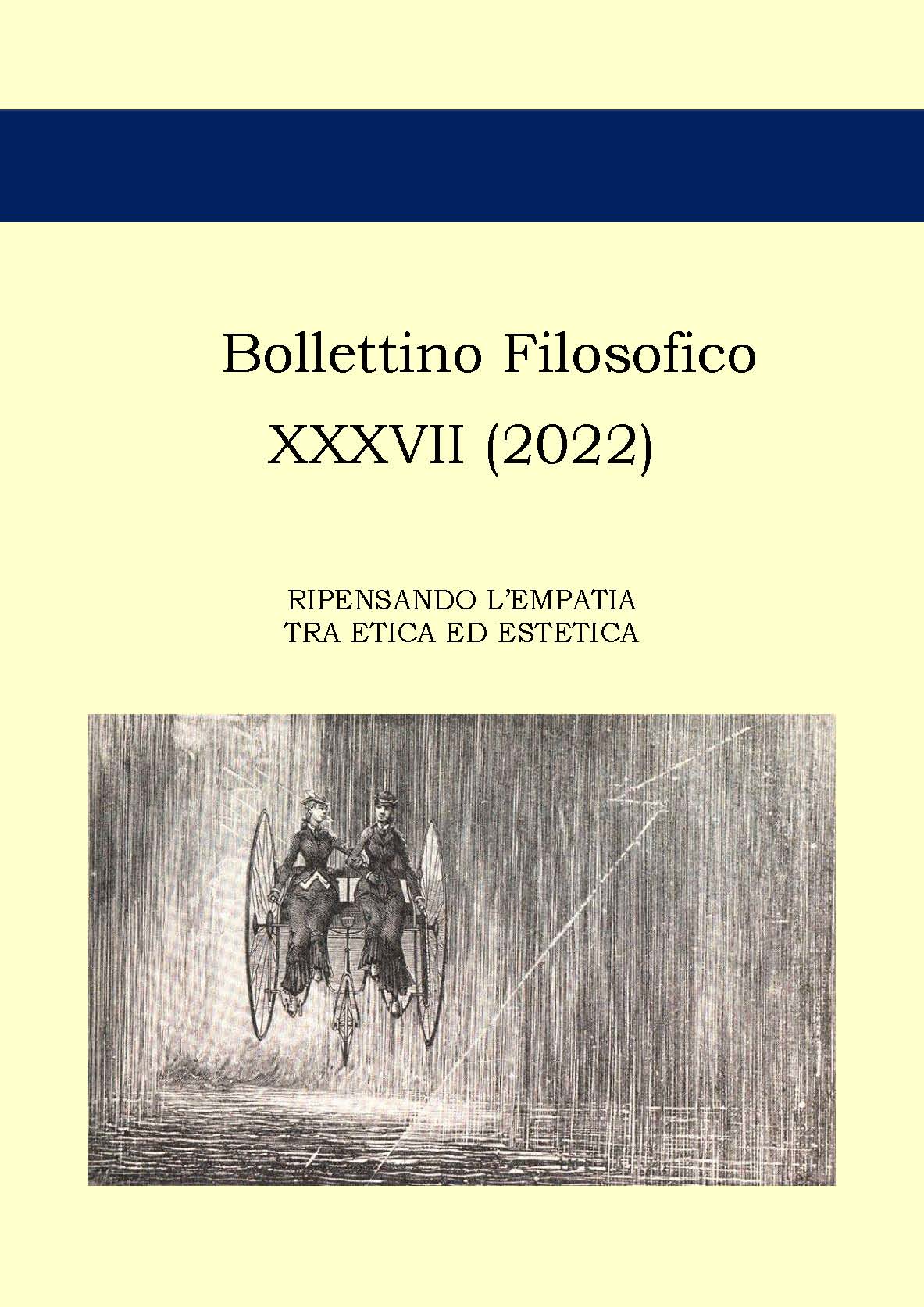The Sympathetic Compassion between Piety and Benevolence
DOI:
https://doi.org/10.6093/1593-7178/9673Abstract
In Schopenhauer’s philosophy, compassion is both the direct source of ethical practice, and the foundation of ethics as science. In this sense, compassion is not merely an affection opposed to or coinciding with reason, nor does the ethics of compassion dispense with any form of rational self-determination. Schopenhauer’s ethics is not normative, but descriptive and axiological, as in the human “will” the compassion, although as such it is not action, transforms (or can transform) the moral imperative into directives relevant to action. In this paper we intend to focus on the Schopenhauerian concept of compassion by examining, through it, the logic adopted by the philosopher in order to establish it as the foundation of ethics, highlighting at the same time some difficulties which may result from this.
Keywords: Compassion, Egoism, Ethics, Mitleid, Schopenhauer
Downloads
Downloads
Published
How to Cite
Issue
Section
License
The author retains the copyright of his work whilst granting anyone the possibility “to reproduce, distribute, publicly communicate, publicly exhibit, display, perform and recite the work”, provided that the author and the title of the journal are cited correctly. When submitting the text for publication the author is furthermore required to declare that the contents and the structure of the work are original and that it does not by any means compromise the rights of third parties nor the obligations connected to the safeguard of the moral and economic rights of other authors or other right holders, both for texts, images, photographs, tables, as well as for other parts which compose the contribution. The author furthermore declares that he/she is conscious of the sanctions prescribed by the penal code and by the Italian Criminal and Special Laws for false documents and the use false documents, and that therefore Bollettino Filosofico is not liable to responsibilities of any nature, civil, administrative or penal, and that the author agrees to indemnify and hold Bollettino Filosofico harmless from all requests and claims by third parties.

